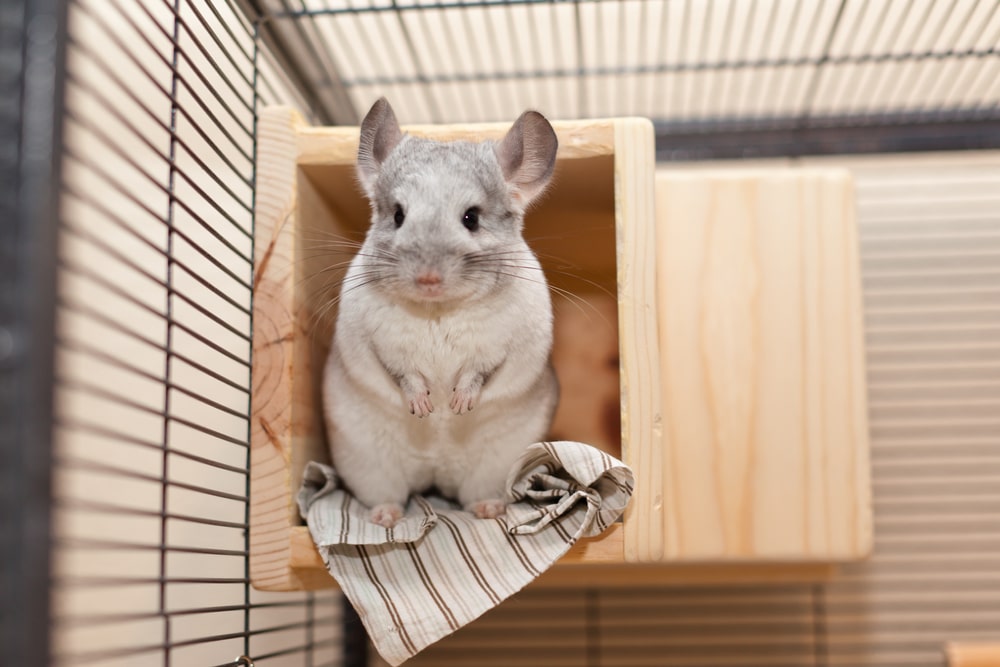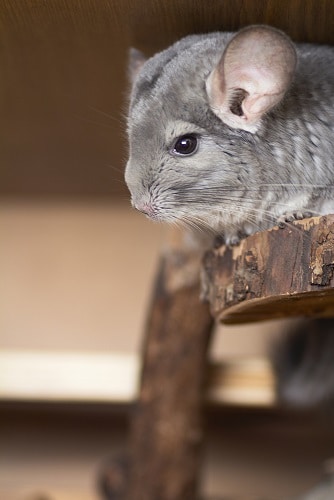
Chinchillas are a fascinating species of rodents and make for cute pets. Their place of origin is South America, and they are mostly found in Andes Mountains.
Besides being a popular option as a pet, they’re a source of soft wool. Chinchillas are popular because of their nocturnal behavior, so they are mostly active at night, sleep during the day, and do not hibernate.
The life expectancy of chinchillas is approximately ten years, and they weigh between 400 and 600 grams. Usually, female chinchillas are larger than their male counterparts.
If you want to bring a chinchilla home as a pet, you can get one from pet shops or breeders. Make sure the chinchilla is healthy and likes to be handled.
Signs Of A Healthy Chinchilla And How To Take Care Of Your Chinchilla
Signs Of A Healthy Chinchilla
A healthy chinchilla has shiny and clear eyes. Make sure that its eyes aren’t watery, as this is not a sign of healthy eyes. If the nose, eyes, and ears are secreting discharge, it could be a sign of health issues.
Look at the chinchilla’s teeth. The upper and lower teeth should be aligned, but even if they cover the jaw, there should be no signs of drooling.
Check the chinchilla’s body for wounds. As they are mostly active at night, you should check on them to see if they’re active and alert after the sun goes down. If it’s behaving lethargically, you should take it to a veterinarian to check its heart rate and test the excreta for the presence of parasites.
Additionally, you should make it clear to the breeder or the supplier that if the chinchilla isn’t healthy, you will return it, and they must agree to the terms.
Chinchillas that find it hard to walk and cry most of the time aren’t suitable as pets. Before you bring them home, handle them for a little while to see if they can get used to being handled. Chinchillas are easily frightened, so it’s important that you’re gentle when approaching them.
The chinchilla shouldn’t be too fat or extremely thin. You can assess this by touching the ribs gently. Ideally, there should be a small amount of fat.
Also, check the anal region. If it is moist or you see signs of diarrhea, which is easy to spot, it could indicate a possible gastrointestinal infection.
Take Your Chinchilla To A Vet
Once you bring home your chinchilla, schedule an appointment with a vet for a detailed examination. The vet will determine the chinchilla’s weight and perform a complete physical exam to check for abnormalities.
The vet will further determine your pet’s health and look for signs of dehydration and malnutrition. Conduct a fecal test to check for internal parasites. If your vet recommends blood tests for a detailed check-up, get them done too.
You can also get your pet tested and determine its sex, take your chinchilla to the vet at least once a year and get its droppings tested for infections and internal parasites.
How To Take Care Of Your Chinchilla
Some of the pet chinchillas you get from a pet store may have never been in the wild, so they are used to being indoors. We will discuss some ways you can take care of them.
1. Create Comfortable Surroundings
Create a comfortable environment for your pet chinchilla, and keep your chinchilla safe, happy, and healthy. Chinchillas need a bigger space to move around and are very energetic.
2. Feed Them Well
Provide a balanced nutritional diet to your chinchilla, feed them on time, and keep them from becoming overweight to get into health complications.
Make sure that hay makes up a large part of your chinchilla’s diet, and avoid excess carrots, grains, and apples, as they can upset their stomach.
3. Keep Them Clean
Maintain your pet chinchilla. You should bathe and groom your chinchilla each week to ensure they are healthy and well-maintained.
Conclusion
Chinchillas are fascinating pets; they do not hibernate, usually sleep during the day, and are active at night. But despite their small size, they’re high maintenance.
If you have a pet chinchilla, it’s important that you take care of them by feeding them an appropriate diet, cleaning them, and scheduling regular visits to the vet.
Take them to the vet whenever needed and run some tests to check if they don’t have any infection or abnormality.

